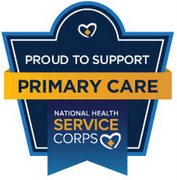Who is Tom Price?
10 Things to know about HHS Secretary designate Tom Price By Medical Economics staff, November 29, 2016 Tom Price, MD, a Republican representative from Georgia, is poised to be nominated as the next secretary of the U.S. Department of Health and Human Services, according to media reports. Here’s what physicians should know about Price. 10. He is a third generation physician, having served in private practice for nearly 20 years in Georgia as an orthopedic surgeon. He received his bachelor’s and medical degrees from the University of Michigan and completed his orthopedic surgery residency at...
Read MoreCelebrating success
CMMI program celebrated The success of FLHSA’s Centers for Medicare and Medicaid Innovation (CMMI) award was highlighted during a celebration with staff and members of the Rochester Health Innovation Collaborative in November. The initiative in 65 primary care practices showed a 50-percent drop in hospital admissions and a 40-percent drop in emergency room visits for people who received care management. His Branches Health Services was an active part of the CMMI project for the past 2+ years and has been extremely grateful for the support and training we have received. Click here to...
Read MorePenalize doctors?
Moving Toward Outcome Measures by Leigh Page As physician payment begins to shift to value-based payments, the measures of quality care will slowly move from processes to outcomes. That’s a relief for some doctors who have never liked reporting process measures and instead wanted to be judged by their outcomes. But outcomes also present a new burden: Doctors will be held accountable for patients who don’t improve because they aren’t following the treatment plan they recommended. “Most doctors don’t mind being judged on their quality of care,” says Kevin...
Read MoreAn interesting mystery
Study Suggests Placebo Benefits CNN (10/27, Scutti) reports that findings from “a new study published in…Pain suggest that a placebo can have real, even profound, physical benefits.” The study’s participants, all of whom had chronic lower back pain, were divided into two groups, one of which continued to receive nonsteroidal anti-inflammatory medications, and another that “received their usual pain drugs as well as placebo pills in a typical prescription medicine bottle.” These participants “were told that a placebo pill contained no medication, and the bottle’s label read ‘Placebo...
Read MoreHeart Failure Risk
NSAIDs Increase Heart Failure Risk A research study recently published in the British Medical Journal found that people who used some commonly used non-steroidal anti-inflammatory drugs (NSAIDs, see list below) had a 19% higher risk of hospital admission for heart failure overall. The study further found that the rate was much higher for Toradol (ketorolac – 83%), than for Aleve (naproxen – 16%), and some such as Celebrex (celecoxib) were associated with little or no increased risk. In an accompanying editorial, Dr. Gunnar H. Gislason, chief scientific officer of the Danish Heart...
Read MoreChurches can help
A new video shows how Rochester churches have inspired members to eat healthier, get active and lower their blood pressure. The three-minute story follows the work of the Interdenominational Health Ministry Coalition, a group of volunteer health champions who partner with the High Blood Pressure Collaborative in more than 20 churches. Produced for the Collaborative’s Urban Wellness Summit at the Maplewood YMCA held on September 29, the video includes participants sharing their motivations for lifestyle change, like this father’s love for his two-year old son: “I want to make sure that I’m...
Read More









